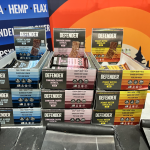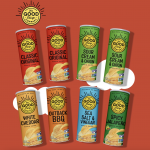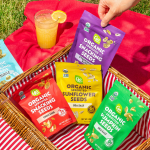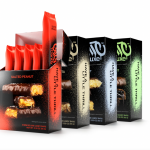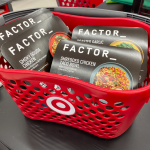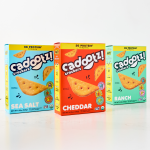CAGNY 2021: CPG Companies Discuss Refreshed Portfolios, Low Sugar Innovation
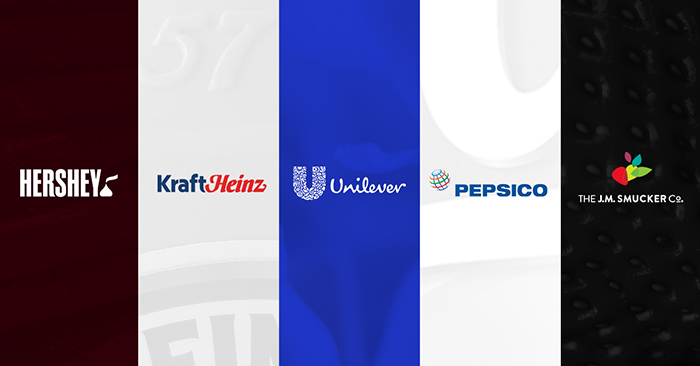
At the annual Consumer Analyst Group of New York (CAGNY) conference, held virtually this year, many leading CPG companies discussed both how they navigated the pandemic in 2020 and laid out their plans and strategies for 2021, with plans for the latter including several new low sugar and plant-based innovations, reducing SKU counts and emphasis on ecommerce.
Hershey
In Hershey’s presentation, president and CEO Michele Buck discussed the importance of balancing innovation with the company’s core confection portfolio.
The company plans to roll out better-for-you versions of the classic confections in its portfolio, including Zero Sugar and Organic Hershey and Reese’s varieties, Buck said. In a press release last week, the company revealed further details of its plans to launch low sugar, organic and plant-based alternatives. Through internal R&D as well as external investments, Hershey plans to develop “breakthrough sugar reduction capabilities,” as well as form partnerships with better-for-you brands partners to co-develop new product offerings. In addition, the company said it will look at acquisition opportunities to meet consumer needs its current portfolio is missing.
As part of this strategy, Hershey last week announced that it co-led an equity investment in start-up ingredient company Bonumose through Hershey’s C7 Ventures, alongside sweetener company American Sugar Refining. Bonumose develops plant-based ingredients such as rare and natural sugars including allulose, which will enable Hershey to improve the taste of its zero sugar and low sugar confections as well as develop new better-for-you products.
“Expanding our expertise, building new capabilities and delivering more choices in better-for-you confection is the next big category opportunity for us to lead,” Kristen Riggs, Chief Growth Officer at Hershey, said.
PepsiCo
Hugh F. Johnston, Vice Chairman, Executive VP and CFO at PepsiCo, highlighted strategies for the company to “become faster, stronger and better” in 2021.
To maintain 4% to 6% organic revenue growth, Pepsico aims to evolve its portfolio to meet the changing needs of consumers in three ways. Johnston said it will look to grow its core brands, develop consumer-centric innovation with brands like Off the Beaten Path and fill gaps in its portfolio through M&A. However, Johnston said the company is “very happy” with its current portfolio of acquisitions over the last few years, including recent addition BFY Brands, and it has now “shifted towards maximizing growth and returns from these assets in a disciplined fashion that would be beneficial for PepsiCo.”
Johnston also said the Frito-Lay brand aims to increase its nutritious snack offerings and extend into meal occasions, as well as refresh its current flavor lineup. To do this, the company will add manufacturing lines to increase capacity, which it will leverage to rebrand and reposition its Lay’s Kettle Cooked chips with “bigger” flavors. The company also aims to increase Frito-Lay’s presence in ecommerce through expansion of its direct-to-consumer offerings as well as partnerships with retailers.
Kraft Heinz
Kraft Heinz CEO Miguel Patricio said the company has completed the first year of a “multi-year transformation, with the goal to make the company “more relevant and efficient” and plans to accelerate this momentum in 2021.
According to U.S. Zone President Carlos Abrams-Rivera, in the U.S. and Canada, in 2021 the company plans to modernize its portfolio and marketing approach, improve its partner programs to increase visibility of its brands and invest in operational efficiencies. He said the company will “renovate” 43% of its portfolio while building out its innovation pipeline with “fewer, bigger and better” innovations, such as recyclable fiber-based mac & cheese cups from Kraft rolling out later this year. Abrams-Rivera also said the company plans to have 20% fewer SKUs by the end of 2021 to place a greater focus on its core products, which the company anticipates will result in a 25% increase in net sales per SKU.
To build awareness of its portfolio, the company will increase its marketing spend 25% with two-thirds of this budget dedicated to the digital channel. This move will help fuel its ecommerce business, he said, which has seen 185% net sales growth since 2019.
The J.M. Smucker Company
J.M. Smucker Company president and CEO Mark Smucker outlined the company’s focus on “executional excellence” in 2021, with the goal to “unlock the full potential” of the company’s strategy. This plan includes four pillars: driving commercial excellence (improving marketing and retailer partnerships), streamlining cost infrastructure (optimizing supply chain), reshaping its portfolio (divesting brands that do not drive growth and optimizing SKU assortment) and creating a “leaner and more agile” organization.
Its consumer foods business, which saw $1.5 billion in net sales in 2020, is led by its peanut and fruit spreads categories, and the company will continue to grow those businesses in 2021. The company will roll out new Jif Innovations, including no added sugar and squeezable pouches for its original and natural Jif varieties.
The company has increased market share in three away-from-home categories — coffee, Smuckers Uncrustables and Portion Control Spreads — in the past year, Smucker said. To continue this growth, the company will discontinue 30% of its SKUs which account for just 3% of its sales, as well as consolidate its distribution footprint, beginning May 1.
These plans, Smucker said, will help the company become more “focused, efficient and agile” as well as strengthen its capabilities to “deliver consistent, sustainable growth.”
Unilever
The main focus of Unilever’s food business in 2021 will be functional nutrition and plant-based foods, CEO Alan Jope said. In 2020, the company saw 25% growth in its functional nutrition business, which includes recent acquisitions such as vitamin brands SmartyPants and Olly and drink mix maker Liquid I.V. The company is also continuing to narrow its category focus, no longer operating in the spreads and tea categories, and expects to complete the divestment of its Lipton Tea business by the end of 2021. Jope said the company will also look to grow through science-based innovation, such as through its plant protein structuring capabilities, used in innovations like new Hellman’s products as well as in plant-based meat.
The company also plans to continue to expand its ecommerce business, which grew 61% last year (and 123% in the U.S.) and now accounts for 9% of the company’s sales, Jope said.
